Perspective
Illegal Mining in Northern Nigeria: A Ticking Time Bomb
Perspective
The phenomenon of illegal mining in northern Nigeria has evolved into a complex crisis with far-reaching implications. From Kaduna to Zamfara, the story is the same: communities rich in natural resources, but impoverished due to systemic exploitation and lack of effective regulation. While the South-South region faces harsh measures for illegal oil refining, the unchecked illegal mining in the north deserves a critical national focus.
The Scale of the Problem
An estimated 80% of mining in the northern states, including Kaduna, Katsina, Kebbi, Kogi, Nasarawa, Niger, Plateau, and Zamfara, is conducted illegally. This involves over two million people engaged in artisanal and small-scale mining operations. For many, it is a matter of survival, a way to escape the grip of poverty in regions often overlooked in terms of economic development and infrastructure.
However, this survival mechanism has been weaponized by criminal networks. Reports suggest that illegally mined gold is exchanged for arms, fueling the already volatile insecurity in the region. This trade not only endangers lives but also threatens the nation’s stability by providing resources to insurgent groups and bandits.
Gender Exploitation in Illegal Mining
Adding to the complexity is the exploitation of women and girls in these illicit activities. Many women and young girls are coerced into working in dangerous mining conditions, while others fall victim to trafficking and sexual exploitation within the mining communities. This underreported crisis highlights the human cost of illegal mining that goes beyond environmental and economic losses.
The North-South Disparity in Resource Management
The disparity in how Nigeria handles illegal resource extraction is stark. In the South-South region, where oil is the lifeblood of the nation’s economy, illegal refiners face stringent crackdowns. Surveillance contractors and security forces often respond with aggressive measures, destroying equipment and arresting offenders.
In contrast, illegal gold mining in the north appears to operate with relative impunity. While oil wealth from the south sustains the country, the gold extracted in the north enriches a select few, often at the expense of national interest. This imbalance perpetuates a sense of marginalization in the south and fuels resentment, as communities see their resources depleted while others profit from unregulated exploitation.
The Need for Urgent Intervention
The federal government must take immediate steps to address illegal mining in the north. This includes:
1. Strengthening Surveillance and Enforcement: Deploying security agencies to monitor and regulate mining activities, similar to the approach in the oil-producing regions.
2. Formalizing Artisanal Mining: Providing a framework for small-scale miners to operate legally, ensuring they benefit from their labor while reducing environmental harm.
3. Investing in Alternative Livelihoods: Offering education, training, and economic opportunities to communities reliant on illegal mining.
4. Addressing Gender-Based Exploitation: Implementing targeted interventions to protect women and girls in mining communities, including healthcare, education, and legal support.
Bridging the Divide
The north-south divide in resource management highlights deeper issues of governance and equity in Nigeria. The perception that the north protects its resources while the south bears the brunt of national revenue generation is not only divisive but dangerous. A united approach to managing the country’s natural resources is essential for fostering national unity and development.
Conclusion
Illegal mining in northern Nigeria is more than a localized issue; it is a national crisis with social, economic, and security dimensions. Addressing it requires coordinated action from all levels of government, private sector stakeholders, and civil society. As a nation, we must ensure that all resources are harnessed equitably and sustainably, not only for the present generation but for those to come. The south’s warning is clear: the hunger and deprivation caused by resource mismanagement will not remain confined to one region—it is a shared threat that demands a collective solution.

Advert
Video: House of Representatives Committee Proposes Creation of 31 New States in Nigeria
By Admin
Abuja – A proposal to create 31 additional states across Nigeria is currently under consideration by the House of Representatives Committee on Constitutional Review. According to the committee, the move aims to address concerns about representation, governance, and regional development across the country.
The proposed states are distributed across various geopolitical zones, with six states suggested for the North-Central region, four for the North-East, five for the North-West, five for the South-South, and seven for the South-West. The committee has indicated that the proposal is in line with Section 8(1) of the Nigerian Constitution, which outlines the requirements for state creation.
Proposed States by Region
North-Central
1. Benue Ala (Benue)
2. Okun (Kogi)
3. Okura (Kogi)
4. Confluence (Kogi)
5. Apa-Agba (Benue South Senatorial District)
6. Apa (Benue)
7. Federal Capital Territory, Abuja (as an autonomous state)
North-East
8. Amana (Adamawa)
9. Katagum (Bauchi)
10. Savannah (Borno)
11. Muri (Taraba)
North-West
12. New Kaduna (Kaduna)
13. Gurara (Kaduna)
14. Tiga (Kano)
15. Kainji (Kebbi)
16. Ghari (Kano)
South-East
17. Etiti (New)
18. Adada (Enugu)
19. Urashi (New)
20. Orlu (Imo)
21. Aba (Abia)
South-South
22. Ogoja (Cross River)
23. Warri (Delta)
24. Bori (Rivers)
25. Obolo (Rivers & Akwa Ibom), possibly a renamed Oil Rivers State
South-West
26. Toru-Ebe (Delta, Edo & Ondo)
27. Ibadan (Oyo)
28. Lagoon (Lagos & Ogun)
29. Ibeju (Ogun)
30. Ife-Ijesha (Ogun, Oyo & Osun)
31. Oke-Ogun (Ogun, Oyo & Osun)
Constitutional Process for State Creation
The proposal will require approval through a series of legislative steps. The Nigerian Constitution stipulates that for a new state to be established, it must be supported by at least a two-thirds majority in the National Assembly, the State House of Assembly, and local government councils in the affected areas. Additionally, a referendum will be conducted, with the final decision forwarded to the National Assembly for ratification.
This proposed restructuring has generated mixed reactions, with some viewing it as a step toward decentralization and regional autonomy, while others question its feasibility given Nigeria’s economic and political landscape.
What are your thoughts on this development? Share your views!
Advert
INC Demands the Creation of Toru-ebe and Oil Rivers States to Address the Underdevelopment of Ijaw Nation.
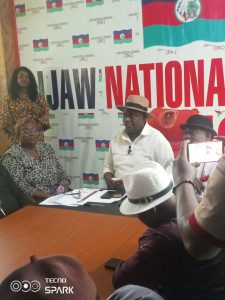
By Admin – Yenagoa
Ijaw National Congress (INC), the highest socio-cultural body representing the Ijaw people globally, has renewed its call for the establishment of two homogeneous Ijaw states—Toru-Ebe and Oil Rivers—citing persistent infrastructural under-development, political marginalization, and environmental neglect.
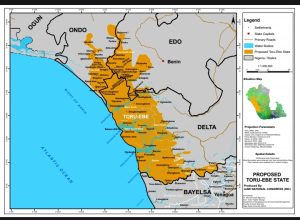
This was disclosed during a press conference held on Wednesday at Ijaw Ware in Yenagoa, Bayelsa State. The INC President, Prof. Benjamin Okaba, emphasized that despite being Nigeria’s fourth-largest ethnic group and hosting some of the country’s key oil export terminals as the single highest producer of oil and gas, the Ijaw people have endured systemic neglect, both in infrastructure and politics.
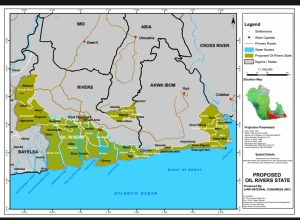
“We call on the Senate President, the Speaker of the House of Representatives, and all distinguished members of the National Assembly to seize this moment in history and act in the interest of justice,” Prof. Okaba stated.
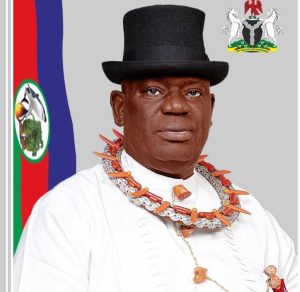
He described this demand as a crucial step toward achieving justice, equity, and lasting peace in the Niger Delta, stressing that it would help redress historical injustices, drive economic progress, and secure a better future for the Ijaw people.
According to the INC, the creation of the proposed states would not only address issues of political exclusion and under-development, but also strengthen national unity. The organization urged all Ijaw people, along with other well-meaning Nigerians, to support the move towards the actualization of this critical milestone for fairness and equity.
Advert
Environmental Alert: Urgent Repair Needed at Alakiri, Okrika
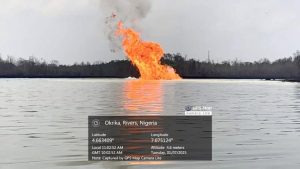
By Divine Perezide
In a developing environmental crisis, residents and concerned stakeholders have raised alarms about an ongoing issue threatening marine life in Alakiri (Ofiemina Ama), Okrika.
According to reports, the cause of the problem remains unknown. However, its impact is severe, as it is actively destroying the sea life in the affected region. A call for urgent intervention has been made to prevent further damage.
In a statement issued by a concerned source, it was noted: “Matter of Urgent Repair. Location: Alakiri (Ofiemina Ama) Okrika. Reason: Unknown. Status: Not yet stopped. Impact: Destroying our sea life.”
The exact nature of the issue has yet to be determined, but local authorities and environmental agencies are urged to investigate and address the situation promptly.
This report is credited to MEDBOSS, with the hashtag #MEDBOSS signaling a wider appeal for awareness and action.
As the crisis unfolds, environmentalists and community leaders emphasize the need for swift measures to mitigate further harm and preserve the delicate marine ecosystem of Okrika.